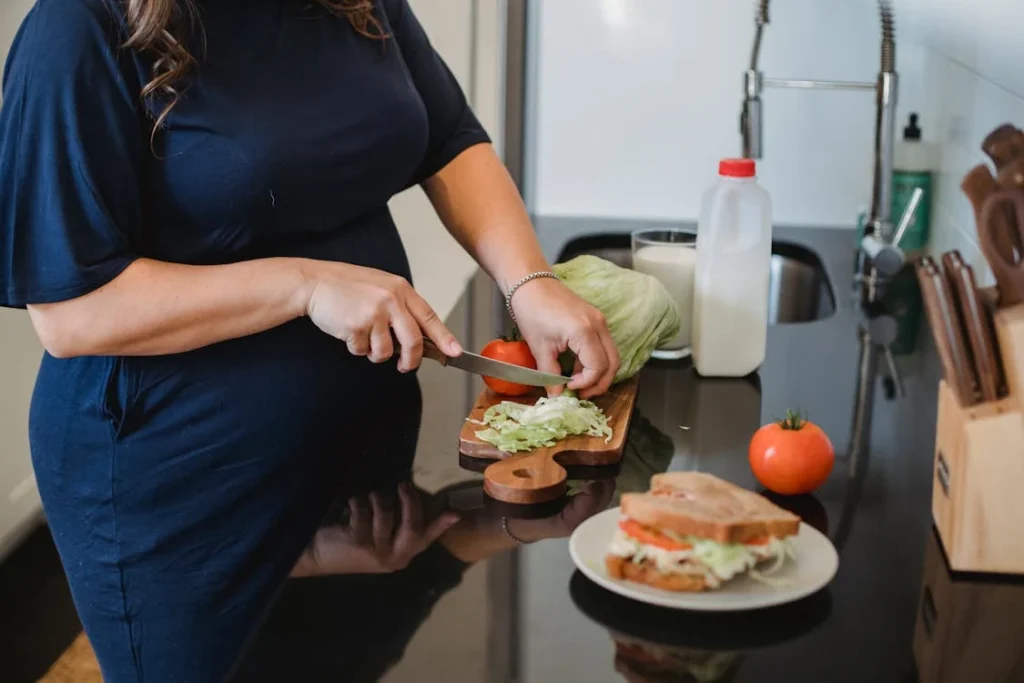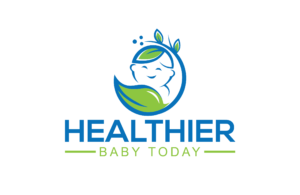You need to eat healthy when you are pregnant. Do you know where to start? Don’t worry; we’ll help you design your pregnancy meal plan! To ensure both yourself and your baby remain healthy, it is essential to adopt good eating habits as early as possible after conception. Plenty of variations in the female body during this time require more nutrients than usual. The secret lies in consuming nourishing meals rather than just more quantities of foodstuff. This manual is designed for any expectant mother, supportive partner, or individual concerned about prenatal nutrition education; it offers suggestions on how to accomplish this through well-balanced diet plans that will foster maternal health and enhance fetal growth.
Table of Contents
The Fundamentals Of A Balanced Diet For Pregnant Women

A balanced diet for pregnant women does not mean increasing consumption but making good choices. Getting enough vitamins, minerals, and other nutrients into your system is crucial when carrying a child. Folic acid is an important nutrient necessary during fetal development because the lack thereof can cause defects within the central nervous system, especially along the spinal cord (neural tube defects).
Iron promotes growth plus maturation of babies, hence preventing maternal anemia characterized by low oxygen levels in the bloodstream. At the same time, calcium ensures solid bones & teeth formation besides supporting fetal bone health.
Essential Nutrients And Their Sources
Knowing essential nutrients at this time enables one to make wise dietary decisions. Here are some examples:
- Folate (Folic Acid): spinach, broccoli, asparagus, peas, lentils seeds fortified foods;
- Iron: lean meats, fish, poultry legumes, spinach, iron-fortified cereals;
- CalciumCalcium: milk, cheese, yogurt, other dairy products like cream butter, etcetera
- Protein: meat, eggs, beans, nuts, whole grains.
Adding different varieties of food items into meals ensures a supply of each type required, thus contributing towards achieving a healthy pregnancy.
Designing Your Pregnancy Meal Plan
Create a pregnancy meal plan full of nutrients. Make an omelet with spinach and cheese on whole grain toast for breakfast, which provides folate and iron. Have a lean chicken salad with vegetables for lunch, and add some seeds or nuts for extra protein.
Dinner could be baked salmon with steamed broccoli served over quinoa, which gives Omega-3s content along with some proteins. Snack on yogurt with fruit or whole grain crackers topped with cheese, which is packed with energy. All these foods will provide essential vitamins needed during this period.
Hydration During Pregnancy: The Importance Of Water In Your Diet

Staying hydrated is essential when you are expecting since it supports your baby’s and yourself’s health. It aids digestion, creates amniotic fluid, and increases blood volume, thus delivering nutrients to the baby; drinking enough water should not be underestimated! Aim for drinking 8-12 glasses daily while pregnant, but if it becomes boring, try adding lemon slices into the bottle – they give a citrusy taste without any calories, plus help reduce nausea caused by morning sickness.
When women are expecting, they often desire and also dislike certain things. This makes control important. There is nothing wrong with surrendering to cravings sometimes, but it would be better to select healthier alternatives. If you enjoy sugary treats, why not replace them with fruits? Is it junk food that you are yearning for? Prepare a homemade one with less oil and salt than the usual type.
As for aversions, one must think outside the box. Suppose a dish does not sit well with you; then find another nutritious meal option. Are vegetables the problem? Blend some spinach or kale into your fruit smoothie to mask their taste while still getting all those nutrients down!
Safe Eating and Food Safety During Pregnancy
Avoid foods that may lead to foodborne infections when eating safely while expecting. Do not eat raw or undercooked meats, poultry, or seafood such as sushi; unpasteurized dairy products like milk and cheese made from raw milk; soft cheeses like Brie or Camembert with white rind; nor should you have raw sprouts such as alfalfa sprouts due to Listeria monocytogenes and Salmonella outbreaks caused by these foods.
To lower foodborne illness risks, wash fruits and vegetables well, cook meats to safe temperatures, maintain clean kitchen surfaces, and prevent cross-contamination. Store foods correctly; when unsure, avoiding eating them for safety is better.
Dealing With Common Pregnancy Concerns Through Diet
To combat nausea, avoid insipid victuals like hard toast; eat small but frequent meals and sip water or ginger ale to stay hydrated. Carry out physical exercises as per the advice of your healthcare professional to keep glucose within healthy limits during pregnancy.
Prenatal eating plans centered around variety with some moderation should not be taken lightly. It is vital for the mother’s well-being and the child’s growth.
Modifying Your Meal Plan for Each Trimester

Pregnancy is divided into three trimesters, each with unique nutritional requirements; therefore, adjusting calorie intake & dietary plan according to these changing needs as pregnancy progresses becomes essential.
Second Trimester: Eat nutrient-dense meals throughout this period to add about 340 more calories per day and provide adequate nourishment for fetal growth, especially proteinaceous food sources containing iron.
Third Trimester: Another 450 calories daily are needed, mainly from omega-3 fatty acids (critical for brain development) and proteins (for cell replication). Do not forget to take plenty of fluids, as they prevent preterm labor and promote general health within expectant mothers’ bodies.
FAQs
How much weight should I expect to gain during pregnancy?
There is no specific answer since everyone’s body behaves differently, but according to American College Obstetricians Gynecologists (ACOG), one can anticipate 25-35 pounds gain if they were of healthy weight before becoming pregnant; however, personal advice can be given by consulting health care provider depending on their knowledge about you.
Is it safe to consume caffeine while pregnant?
Generally speaking, moderate level consumption – defined as less than 200 mg daily (approximately 12oz cup coffee) – is considered safe throughout gestation; nevertheless, one may wish to discuss further with respective doctors because some might recommend even lower quantities or complete avoidance altogether.
What should I do if I’m experiencing severe morning sickness and can’t keep food down?
If ever there was any moment where an individual finds themselves grappling with extreme forms of nausea accompanied by an inability to retain solid substances or fluids, then seeking medical attention becomes paramount; hence, consulting a healthcare provider might propose medication, change dietary habits, etcetera so that these symptoms, are managed well ensuring mother gets all essential nutrients as required by her growing fetus.
Conclusion

This guide has assisted you in managing your diet when expecting a baby. Proper nourishment is vital for both mom’s and child’s growth. Selecting appropriate snacks for easing morning sickness through adapting meals per trimester, taking into account hydration balance as well as food safety awareness, can significantly enhance one’s experience throughout pregnancy; therefore, these tips can be customized by professionals based on individual needs towards healthier living between now and delivery time. Good luck, ladies!


